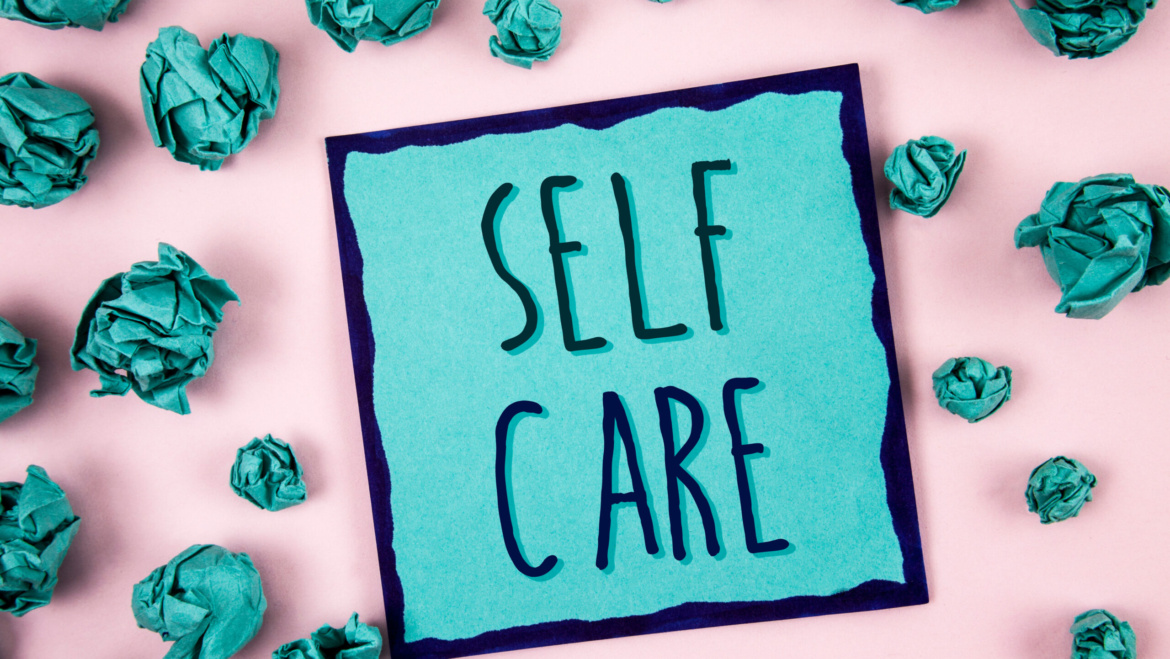Do you often find yourself feeling overwhelmed and stressed out? Or maybe you struggle with low self-confidence and lack of happiness in your life.
Well, have no fear because self-care is here! Taking care of yourself not only helps reduce stress, but it can also boost your confidence levels and increase overall happiness. In this blog post, we’ll explore the many benefits of self-care and how you can incorporate it into your daily routine for a happier, healthier life.
So grab a cup of tea or coffee, sit back, and let’s dive into the wonderful world of self-care!
What is Self-Care
Self-care is any activity that we do deliberately in order to take care of our mental, emotional, and physical health. Although it is often associated with activities such as getting a massage or going for a walk, self-care can also be something as simple as taking a break when we’re feeling overwhelmed or taking the time to eat a nutritious meal.
The purpose of self-care is to replenish our energy and resources so that we can be our best selves and better cope with the demands of everyday life. When we neglect our own needs, we become more susceptible to stress, illness, and burnout. By making self-care a priority, we can boost our confidence, reduce stress, and increase happiness.
There are many different ways to practice self-care, and what works for one person may not work for another. The important thing is to find activities that make you feel good both physically and emotionally. Here are some ideas to get you started:
• Get regular exercise: Exercise releases endorphins which have mood-boosting effects. A moderate amount of exercise is the key to maintaining your mental health and well-being.
• Make time for hobbies and activities that you enjoy: Doing things that you enjoy helps reduce stress and increases happiness. Make sure to schedule in some “me time” every week to do something that you truly love.
• Get enough sleep: Sleep plays an important role in overall health
The Benefits of Self-Care
Self-care is a necessary component of a happy and healthy life. When we take care of ourselves, we are better able to take care of others. Taking time for ourselves allows us to recharge our batteries so that we can be our best selves.
There are many benefits to self-care, including reducing stress, increasing happiness, and boosting confidence. When we take care of ourselves physically, mentally, and emotionally, we are better able to meet the demands of everyday life. We all have different needs when it comes to self-care, but there are some basic things that everyone can do to nurture themselves.
Some ways to practice self-care include:
• Get enough sleep: Most people need around eight hours of sleep per night. Consider going to bed and waking up at the same time each day to help regulate your body’s natural sleep rhythm.
• Eat healthy: Eating nutritious foods helps your body to function at its best. Make sure to include plenty of fruits, vegetables, and whole grains in your diet.
• Exercise: Exercise releases endorphins, which have mood-boosting effects. A moderate amount of exercise is the key to maintaining your health and well-being.
• Take breaks: When you’re feeling overwhelmed or stressed, take a few minutes to yourself to relax and rejuvenate. Take a hot bath, read your favorite book, or take a walk outdoors.
• Connect with loved
Developing and Improving Your Self Care Routine
It’s no secret that self-care is crucial for our physical and mental health. However, many of us struggle to maintain a consistent self-care routine. Whether we don’t have time, can’t find the motivation, or simply don’t know where to start, developing a self-care routine can feel daunting.
But it doesn’t have to be! By taking small steps and being patient with yourself, you can develop a self-care routine that works for you. And the benefits are worth it: research shows that self-care can boost confidence, reduce stress, and increase happiness.
Here are some tips to get started:
- Start small and build up gradually: Don’t try to do too much at once!Start with one or two activities that you can realistically fit into your schedule. As you get used to incorporating self-care into your daily routine, you can add more activities as needed.
- Experiment and find what works for you: There’s no one-size-fits-all approach to self-care. What works for someone else might not work for you. So take some time to experiment and figure out what activities make you feel good mentally and physically. Some ideas include exercise, journaling, spending time in nature, reading, meditating, listening to music, or spending time with friends and family.
- Make it a priority: Just like anything else in life, self-care takes effort and
When it comes to taking care of ourselves, we often think of indulging in a spa day or quitting a bad habit. However, true self-care is about so much more than just pampering ourselves or breaking unhealthy habits. It’s about nurturing our mind, body, and soul so that we can live our best lives possible.
Self-care isn’t selfish – it’s essential. When we take care of ourselves, we’re better able to take care of others. We’re also able to show up as our best selves in all areas of our lives – from our careers to our relationships.
If you’re looking to develop or improve your self-care routine, here are some tips:
- Nourish your body with healthy food and movement.
Give your body the fuel it needs to function at its best by eating nutrient-rich foods and getting regular exercise. Consider incorporating yoga or meditation into your routine as well – both are great for promoting mental and physical wellbeing.
- Make time for things you enjoy outside of work and responsibilities.
Whether it’s reading, hiking, spending time with friends and family, or anything else that brings you joy – make sure you schedule time for these activities into your week. This will help reduce stress and promote a greater sense of balance in your life.
- Take care of your mental health.
Examples of Self Care Activities
Self care activities can vary greatly from person to person, but there are some common examples that can be beneficial for anyone. Getting regular exercise is a great way to reduce stress and improve mood, and it can also help to boost confidence.
Taking time out for yourself to relax and do something you enjoy can also be very helpful in reducing stress and increasing happiness. Something as simple as taking a few deep breaths or spending time in nature can help to center yourself and recharge your batteries.
Other self-care activities that could help include eating a healthy balanced diet, getting enough sleep, practicing mindfulness or meditation, setting realistic goals and deadlines, spending quality time with friends and family, engaging in creative outlets like painting or drawing, practicing good hygiene, decluttering your home or workspace to reduce distractions, and scheduling fun activities throughout the week.
How to Incorporate Self Care into Your Everyday Life
Self-care is important for our physical, mental, and emotional health. It can help us to reduce stress, boost our confidence, and increase our happiness. There are many different ways to incorporate self-care into our lives. Here are some ideas:
• Make time for yourself: Set aside some time each day for activities that you enjoy or that help you to relax. This could include reading, spending time in nature, exercise, journaling, or meditation.
• Nourish your body: Eating nutritious foods and staying hydrated helps our bodies to function at their best. When we feel good physically, we tend to feel better emotionally as well.
• Connect with others: Spending time with loved ones or being involved in supportive social activities can help to reduce stress and promote positive emotions.
• Give yourself a break: It’s okay to say “no” sometimes and put your own needs first. Don’t be afraid to take some time for yourself – you deserve it!
Challenges of Practicing Self Care
Self-care can be incredibly beneficial to our overall wellbeing, but sometimes it can be difficult to actually practice. Below are some common challenges of self-care and how to overcome them:
- Lack of time: One of the most common challenges people face when it comes to self-care is lack of time. We live in a fast-paced world and it can be hard to slow down and focus on taking care of ourselves. However, it’s important to remember that self-care doesn’t have to take a lot of time – even just 10 minutes a day can make a big difference. try fitting in some quick and easy self-care activities into your day such as stretching, journaling, or listening to relaxation music.
- Feeling guilty: Another common obstacle to self-care is feeling guilty about taking time for ourselves. We may feel like we should be spending our time on other things, such as work or taking care of others. However, it’s important to remember that taking care of ourselves is not selfish – it’s necessary for our own wellbeing and will ultimately help us be better caregivers for others. If you find yourself feeling guilty about taking time for self-care, try reframing your thinking by reminding yourself that you deserve this time and it’s not something you should feel guilty about.
- Not knowing where to start: It can be overwhelming trying to figure out where to start when it comes to self-care. To begin, write a list of activities that you find relaxing and enjoyable. This will help you get an idea of what might be a good fit for your own unique needs. Additionally, it can be helpful to start incorporating small habits into your daily routine, such as taking a few minutes each day to meditate or read a book.
- Feeling unmotivated: Finally, you may struggle with feeling unmotivated to actually do the self-care activities you’ve identified as beneficial to you. To overcome this obstacle, try breaking down your tasks into bite-sized pieces and focus on one task at a time. Additionally, reward yourself for completing smaller goals – this can be in the form of tangible rewards like a cup of coffee or something as simple as taking time for yourself after completing a certain task. When we have something tangible to look forward to, it can make us feel more motivated and excited about the process overall.
Conclusion
Taking care of yourself is essential for your wellbeing. Self-care can help boost your confidence, reduce stress levels, and increase happiness in both the short and long term.
By taking some time each day to practice self-care activities like yoga or journaling, you can learn to empathize with yourself and gain an improved sense of self-worth which will have a positive impact on every aspect of your life.
Investing in yourself today means that you’ll reap the rewards for many days to come!





2 Comments
Lorem ipsum dolor sit amet, consectetur adipiscing elit, sed do eiusmod tempor incididunt ut labore et dolore magna aliqua. Ut enim ad minim veniam, quis nostrud exercitation ullamco laboris nisi ut aliquip ex ea commodo consequat.
Duis aute irure dolor in reprehenderit in voluptate velit esse cillum dolore eu fugiat nulla pariatur. Excepteur sint occaecat cupidatat non proident, sunt in.
Add Comment